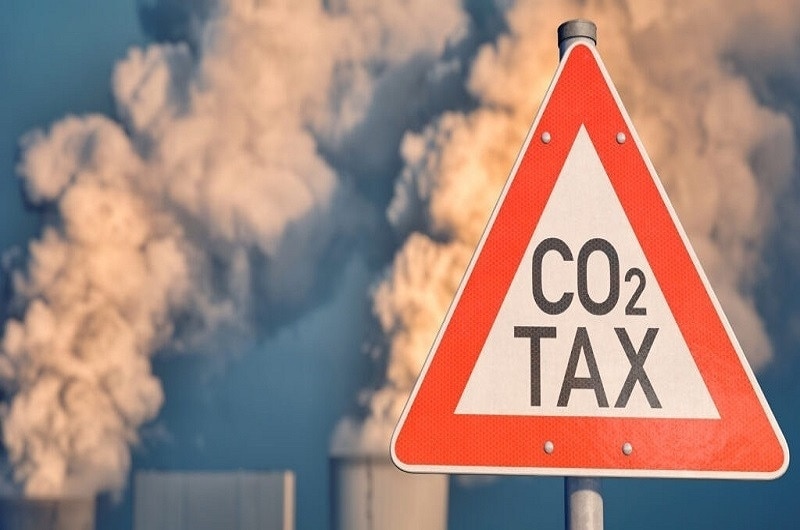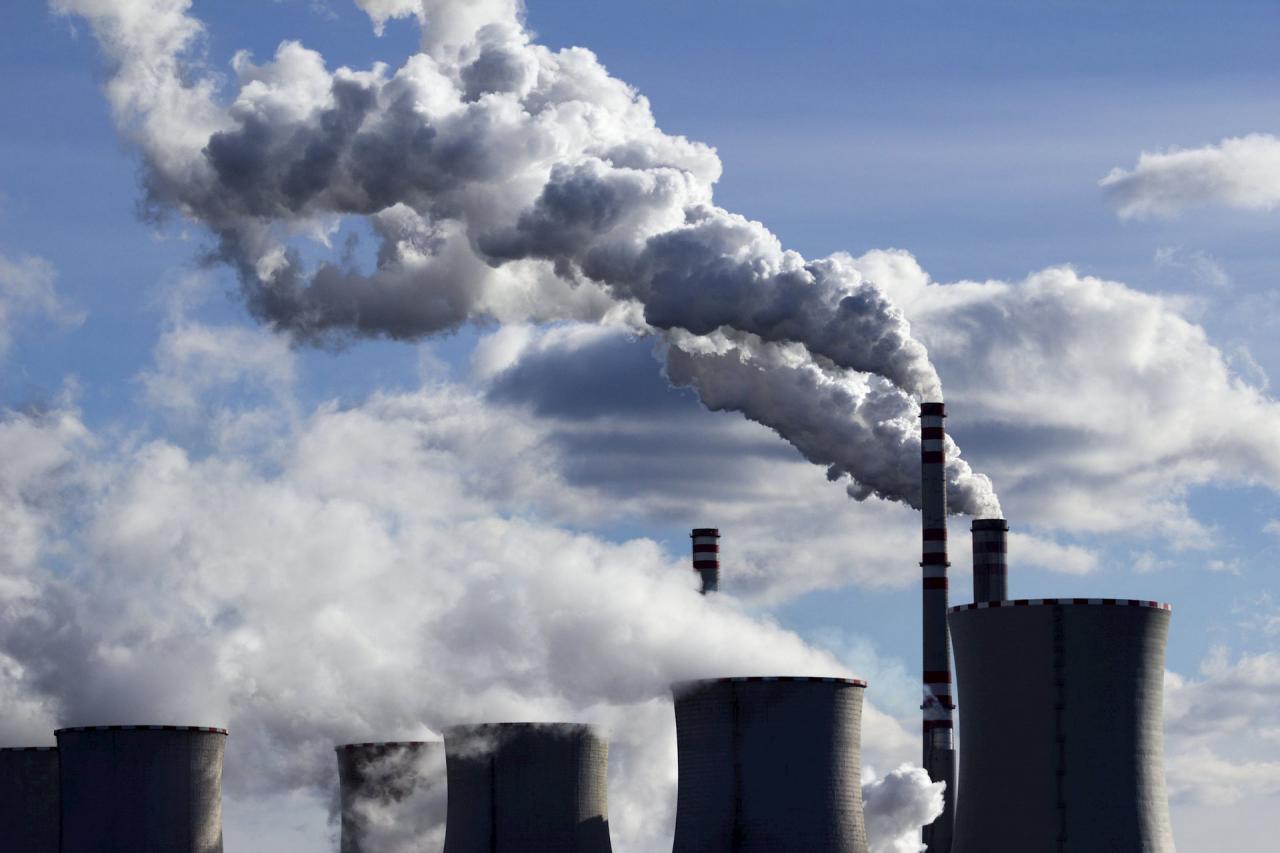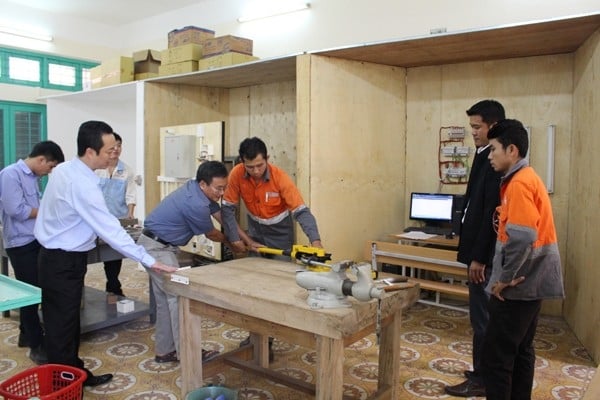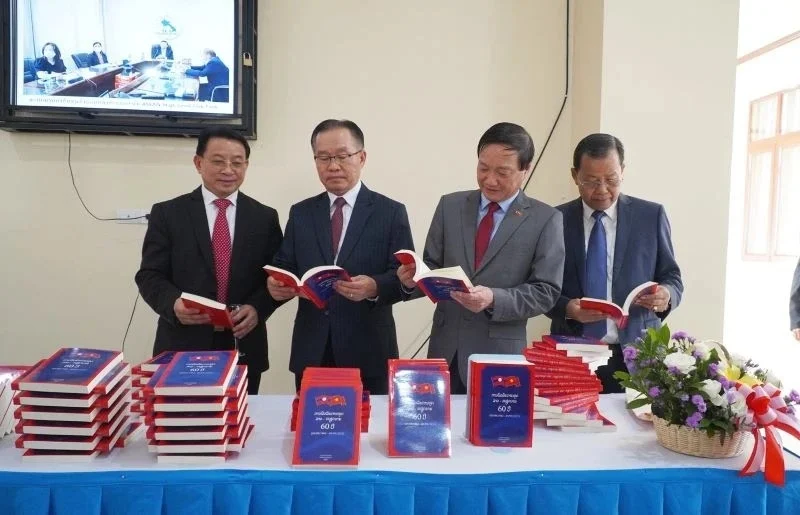Vietnam aims to reduce its total greenhouse gas emissions by 9% by 2030 compared to the business-as-usual scenario. At the same time, it can increase its contribution to 27% when receiving international support through bilateral and multilateral cooperation and implementing new mechanisms under the Paris Agreement on climate change.
Committed to reducing total greenhouse gas emissions by 9% by 2030Participating in the Paris Agreement on Climate Change (effective since 2016), Vietnam committed to reducing greenhouse gas emissions in its Nationally Determined Contribution (NDC). The updated NDC in 2020 sets a target of reducing greenhouse gas emissions by 9% unconditionally (with domestic resources) and 27% conditionally (with international support) by 2030 compared to the business-as-usual (BAU) scenario.
Measures to reduce greenhouse gas emissions for the period 2021 - 2030 are identified for the following sectors: energy, agriculture, land use, waste management, industry...
[caption id="attachment_446665" align="alignnone" width="800"] Effective carbon tax management and collection help reduce greenhouse gas emissions (Photo: Ministry of Natural Resources and Environment) [/caption]
Effective carbon tax management and collection help reduce greenhouse gas emissions (Photo: Ministry of Natural Resources and Environment) [/caption]At the COP26 Conference, the Prime Minister affirmed that although Vietnam is a developing country that has only begun to industrialize in the past 3 decades, but has advantages in renewable energy, Vietnam will develop and implement strong measures to reduce greenhouse gas emissions using its own resources, along with cooperation, financial support and technology transfer from the international community, especially developed countries, including implementing mechanisms under the Paris Agreement, to achieve Net Zero by 2050.
At the same time, Vietnam commits to reducing methane emissions by 30% by 2030, committing to combating forest degradation and converting to clean energy; Vietnam calls on all rich and developed countries to share, support and help developing and poor countries in improving institutions; training human resources associated with innovation; arranging appropriate and effective green finance; sharing green technology; national governance to implement methane reduction.
Vietnam's strong commitments and responsible contributions at the COP26 Conference were highly appreciated by the international community, opening up many opportunities for cooperation on low-emission growth, promoting circular economic development, and adapting to climate change. Domestic and foreign development partners have expressed their desire to cooperate with Vietnam to implement commitments, opening up opportunities to take advantage of the shift of global financial resources for low-emission development into Vietnam.
Carbon market management - an effective solution to reduce greenhouse gas emissionsTo achieve the goal of reducing greenhouse gas emissions, Vietnam has synchronously deployed many solutions, including carbon market management.
Developing the domestic carbon market is identified as a key priority task stated in Resolution No. 24-NQ/TW of the Party Central Committee (11th tenure) on "Proactively responding to climate change, strengthening natural resource and environmental management"; Plan to implement the Paris Agreement in 2016...
Previously, because there was no mandatory obligation to reduce greenhouse gas emissions, businesses only exchanged carbon credits voluntarily under international cooperation mechanisms.
However, as required by the Paris Agreement, Vietnam must fulfill its mandatory obligation to reduce greenhouse gas emissions from 2021 according to its Nationally Determined Contribution (NDC). In particular, it is necessary to make efforts to implement measures to reduce greenhouse gas emissions towards the goal of achieving net zero emissions by 2050 as committed at the COP26 Conference.
Vietnam has identified the application of carbon pricing tools to support the goal of reducing greenhouse gas emissions. Many businesses have experience in implementing carbon credit projects. Voluntary carbon credit exchange from Vietnam to the world has been carried out by businesses since the mid-2000s when implementing programs and projects under the Clean Development Mechanism (CDM).
[caption id="attachment_446671" align="alignnone" width="1280"] Vietnam has identified the application of carbon pricing tools to support the goal of reducing greenhouse gas emissions (Illustration photo, source: Tuyengiao.vn). [/caption]
Vietnam has identified the application of carbon pricing tools to support the goal of reducing greenhouse gas emissions (Illustration photo, source: Tuyengiao.vn). [/caption]According to statistics from the Department of Climate Change, Vietnam has more than 300 programs and projects registered to implement carbon credit mechanisms. Of these, about 150 programs and projects have been granted more than 40.2 million carbon credits and exchanged on the world carbon market.
Director of the Department of Climate Change (Ministry of Natural Resources and Environment) Tang The Cuong said: Vietnam is currently developing a "Domestic Carbon Market Development Project", focusing on mandatory trading of greenhouse gas emission quotas of enterprises; trading in the domestic carbon market and orientation for connection with the international market. The country currently has 1,912 enterprises required to inventory greenhouse gases and meet emission quotas.
A carbon credit is a permit that allows its holder to emit a certain amount of carbon dioxide or other greenhouse gases. In the market, the trading of carbon, or more precisely the trading of CO2 emissions, is carried out through credits. One credit allows the emission of one ton of carbon dioxide or its equivalent in other greenhouse gases. The ultimate goal of carbon pricing and establishing carbon markets is to mitigate greenhouse gas emissions, contribute to climate change response and achieve other sustainable development goals. |
Ha An




![[Photo] Closing of the 11th Conference of the 13th Central Committee of the Communist Party of Vietnam](https://vstatic.vietnam.vn/vietnam/resource/IMAGE/2025/4/12/114b57fe6e9b4814a5ddfacf6dfe5b7f)

![[Photo] Overcoming all difficulties, speeding up construction progress of Hoa Binh Hydropower Plant Expansion Project](https://vstatic.vietnam.vn/vietnam/resource/IMAGE/2025/4/12/bff04b551e98484c84d74c8faa3526e0)


























































































Comment (0)